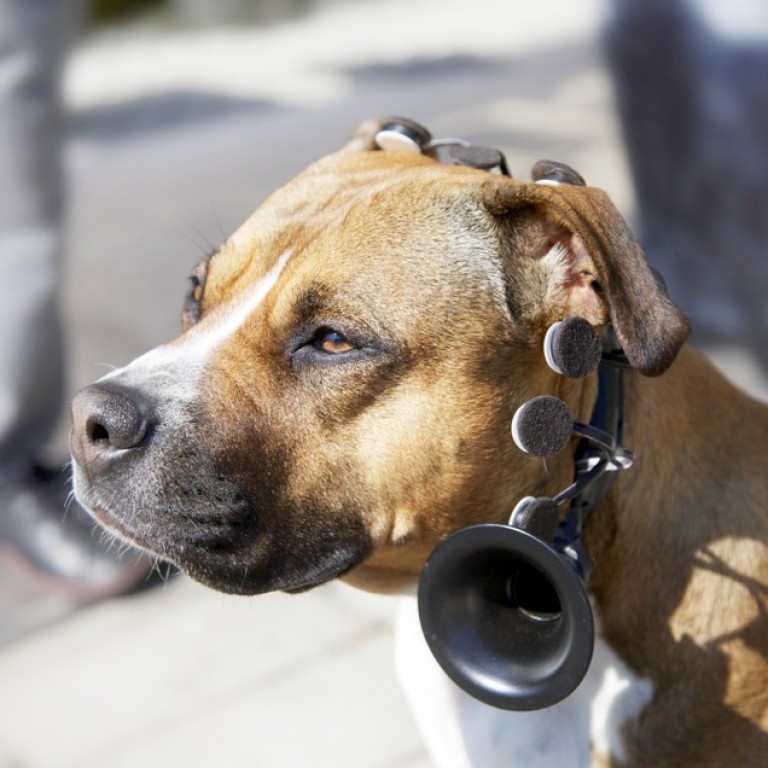
Talking dogs aren't just in cartoons anymore - 'No More Woof' gives canines a voice
Developed by Scandinavian researchers, No More Woof is a headset that uses special technology to recognise the thought patterns of dogs
“Hi there … I have just met you and I love you,” says Dug, the animated pup with a thought-transmitting device from Pixar’s 2009 film Up. He is a bundle of joy and yaps away until he is distracted by a “….Squirrel!”
While we all had a good laugh at this loveable canine, and probably would find it charming if our real-life furry friends could pester us like Dug, we are also wise enough to know that talking dogs just don't exist.
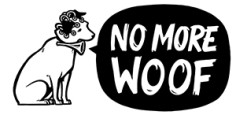
A small Scandinavian research lab is currently developing brain-scanning technology to detect a dog’s thought patterns, which will then be analysed and translated into a series of spoken word phrases.
The Nordic Society for Invention and Discovery (NSID) are behind this technology, which takes the form of an innovative headset codenamed "No More Woof".
Video: No More Woof Indiegogo video
In other words, when worn by a dog, the No More Woof headset will use sensors to detect specific electric signals and neurological waves in the dog’s brain. This information is then analysed by the technology and associated with certain feelings, which can then be vocalised via several pre-recorded phrases.
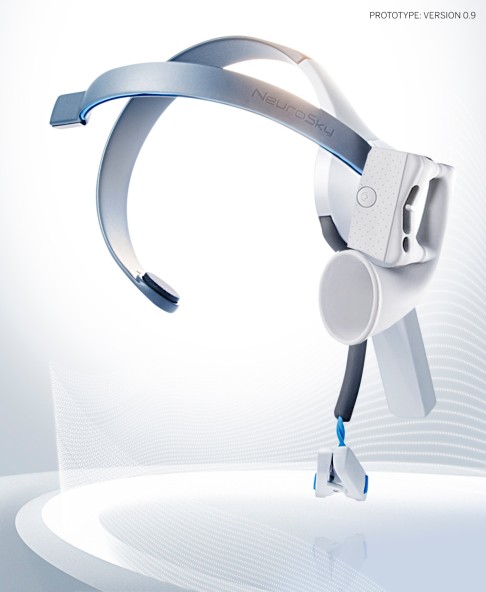
For example, if the dog’s neurological patterns indicate a feeling of hunger, the device will detect this and vocalise it. In that sense, technically, No More Woof works by "translating" a canine's mental state, rather than its specific thoughts.
According to NSID developers, the most easily detected neural patterns are: "I'm tired", "I'm curious who that is?" and "I'm excited" - all phrases fairly fitting for an excitable pup.
No More Woof's creators are currently working on 8 different voices for the headset to transmit, and users will eventually be able to choose between a grumpy bulldog (named Harley) or a more optimistic chihuahua (named Abby) as the base for their dog’s "voice."
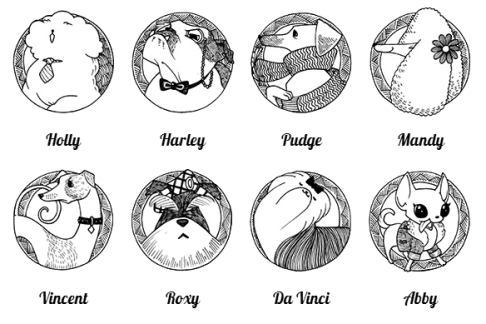
At the moment, No More Woof is only being developed with English phrases, but NSID plans on creating Putonghua, French and Spanish versions of the device in the near future.
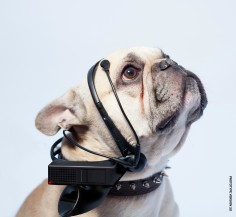
“Right now we are only scraping the surface of possibilities; the project is only in its cradle. And to be completely honest, the first version will be quite rudimentary,” the designers wrote on their website. “But hey, the first computer was pretty crappy too.”
Nevertheless, interested buyers can currently pre-order different versions of the No More Woof headset. There are multiple versions available, including a simple model capable of distinguishing two to three thought patterns and a more advanced model that can reprogram itself and recognise more sophisticated thoughts.
For those of us who don't want to pre-order, we must resign ourselves to waiting patiently for NSID to finalise their work on giving a voice to our furry friends.
In the meantime though... How about another round of Up?
For more information on No More Woof, click here.

